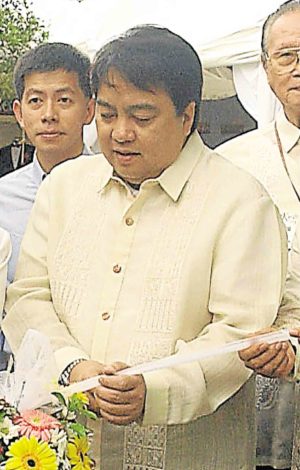Former Intramuros Admin chief gets 6-10 years for graft
The Sandiganbayan has sentenced former Intramuros Administration (IA) head Dominador Ferrer Jr. to a prison term of six to 10 years, finding him guilty of graft for allowing a company to build new structures within the Walled City without a building permit or clearance in 1998.
In a decision dated May 11, the court’s Second Division held Ferrer liable for awarding lease contracts to Offshore Construction and Development Co. (OCDC) covering Baluarte de San Andres, Baluarte de San Francisco de Dilao and Revellin de Recollectos.
The court noted that OCDC was not on the IA’s list of recipients of building permits between 1997 and 1998.
New structures
In his defense, Ferrer said the firm had secured development clearances for the three leased areas. The court, however, pointed out that OCDC filed its applications only on Oct. 13, 1998, which were granted two days later.
Article continues after this advertisementAt that time, the firm’s construction of new structures along Baluarte de San Andres was already 75-percent complete, the court said, citing the testimony of cultural properties conservation division head Augusto Rustia.
Article continues after this advertisementThe court also noted that Ferrer wrote OCDC president Amado Cruz on Aug. 19, 1998, giving his firm the go-signal to implement the construction projects. The lease agreement, however, was executed only the day after, on Aug. 20.
‘Inexcusable negligence’
Aside from the preemptive letter and the belated issuance of development clearances, the court faulted Ferrer for going ahead with the projects despite being informed of OCDC’s violations as early as September 1998.
“At the very least, [Ferrer] had exhibited gross inexcusable negligence in allowing the lessee to develop and construct on the leased premises, even as [its] compliance with requirements remained deficient, and with knowledge that such was in contravention of his duties under the Intramuros charter,” the court said.
Rustia and inspection committee member Anna Maria Harper had testified that anchored beams, steel matting and nails were bored through the historic walls. IA consultant Esmeralda Gatbonton added that concrete planters and a mezzanine were placed atop the walls.
The case was filed in the antigraft court in January 2001.
